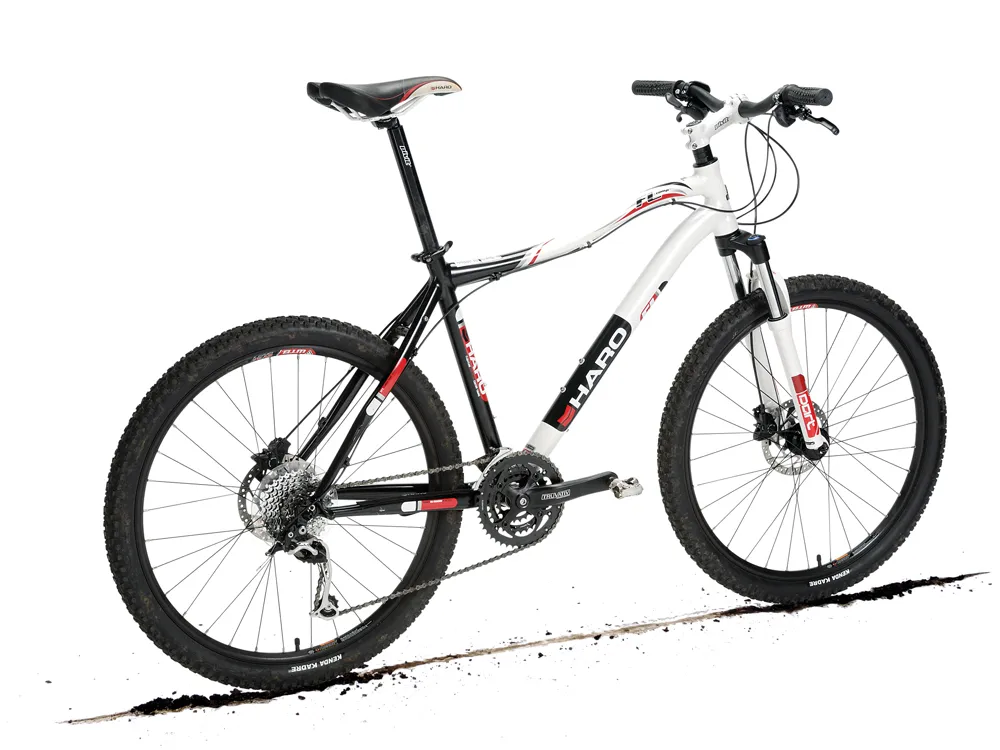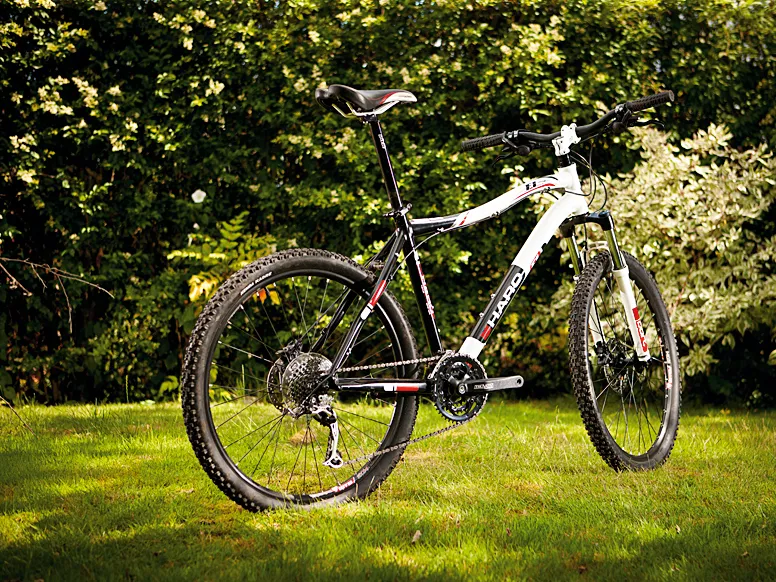The long established Haro brand is probably better know for its BMX rigs. The UK distributor doesn’t bring in the complete mountain bike range but the 2011 hardtails look great. As with many of its price rivals, a Flightline Comp can be found for less than its RRP if you’re willing to shop around. That’s a good thing, as it’s up against better-equipped bikes at this price.
The Flightline Comp has a great frame and rides well but we expect to find a better fork than a RockShox Dart at this price. It’s hefty and under-equipped for its RRP, but worth considering if you find one for less.
Ride & handling: Overall trail feel is good
There are lighter bikes available around the £800 mark: its 30lb heft is noticeable in initial acceleration and on climbs. But overall trail feel is good, with only the mediocre fork performance reminding you that rough trails need extra body language when riding on a budget fork. The ride position is well stretched for efficient power transfer on long climbs, the steering is very nicely balanced on even the most technically demanding singletrack and the super-soft saddle and soft compound grips add to trail comfort. A 12in bottom bracket height boosts stability but takes a while to get used to, initially causing pedal/ ground strikes through bumpy corners.
Frame: Nicely designed
The frame has double-butted top, seat and down tubes. Swoopy hydroformed biaxially ovalised shaping to the top and down tubes creates great aesthetics and boosts tracking stiffness, while smooth-welded tube junctures make for a very clean look, flattered by the integral headset and full-outer-cable routing. Standover height is roomy and there are three sets of bottle cage bosses and rack mounts.
Equipment: Fork and crankset are downgrades
The RockShox Dart 2 fork has decent factory set compression damping, a ‘lockout lever’ that still leaves a small amount of compression and a preload dial to increase the pressure it takes to compress the fork. That’s all fine, and the 100mm of travel is welcome, but skinny stanchions contribute to noticeable flex, especially when braking hard on bumpy terrain.
The drivetrain package starts well, with an XT rear gear matched to Deore up front and Deore shifters, but a steel ringed square taper-axled bottom bracket Truvativ crankset, while it works well enough, is a downgrade compared to a lot of other bikes we’ve seen around this price. While there’s nothing actually wrong with it - the bottom bracket will actually cost less to replace than some higher spec units - you’d save weight and get more drivetrain stiffness on better units.
Basic Shimano hydraulic disc brakes take a few rides to bed in but they have enough power to suit all but the most demanding riders. The WTB-rimmed wheels are tough enough and Kenda’s Kadre treads roll fast and grip well in the dry but clog in sticky mud. No complaints about Haro’s own brand Pivit finishing kit though. The 25in riser bars are a good happy medium between wide riser bars that are great for extra control off road and narrower straight bars that are probably better if lots of your miles are on the road. The Haro Race saddle is a good compromise too, slimline but supportive and comfy.

